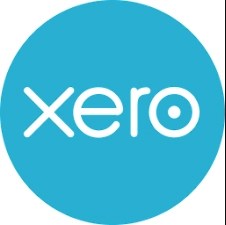Written by Stephen Beard, Managing Director of Plyo Bookkeeping, a Vancouver-based bookkeeping firm.
Starting a new business is an exciting venture, but it also comes with its fair share of administrative responsibilities. One of the most crucial aspects of managing your startup’s finances is selecting the right Cloud accounting software. The market offers various options, but three of the most popular choices are QuickBooks, Xero, and Wave. In this article, we will compare these three accounting solutions to help you make an informed decision for your startup.



Comparing the Top 3 Cloud Accounting Software
1. QuickBooks Online (QBO) – The most common choice
QuickBooks Online, developed by Intuit, is the most widely used cloud accounting software in the North American market for startups and small businesses. But does being the most popular mean it’s the best? In this author’s view, the answer is categorical, unambiguous, “it depends”. QuickBooks has a lot of very powerful features, which makes it the best software for a professional accounting or bookkeeping firm to use. However, it falls badly on user interface and ease of use. QBO can be difficult to use for non-professionals, so we don’t recommend it if you’re looking to do your books.
Pros:
- Comprehensive Features: QBO offers a wide range of features, including invoicing, expense tracking, payroll management, and inventory tracking. It can accommodate the needs of most startups as they grow.
- Third-party Integrations: It offers integrations with popular third-party apps like Shopify, PayPal, and TSheets, allowing you to extend its functionality as your business requires.
- Customer Support: QBO provides reliable customer support through phone, chat, and email. Their CS is hands down the fastest of the software reviewed.
Cons:
- Pricing: There’s no getting around the need to pay for this software, so for a very small business (less than 20 transactions per month) consider checking out Wave
- Learning Curve: You’ll read a lot of blog posts saying QuickBooks online is user-friendly, but that’s often in comparison to older desktop software that was far more manual and complex. QBO still uses far too much accounting jargon, making it harder for non-accountants to understand what’s going on. It also has some very obtuse layouts and user flows, so finding the tool you want can be frustrating.
- User Experience: As a professional working in cloud software all day, I don’t need a black and grey color scheme, and I don’t need my view of reams of financial data to be in a display box that only uses a third of the available screen space. The poor presentation of detailed accounting records is the biggest black mark against QBO for the regular user.

2. Xero: The Cloud-Based Alternative
Xero is another cloud-based accounting software designed for small businesses and startups. It’s known for its powerful accounting tools and ease of use. It’s the main competitor for QuickBooks and the two have similar pricing. It’s a much newer entrant to the North American market, meaning it’s still less known about.
Pros:
- Comprehensive Features – Everything that QuickBooks Online has
- Learning Curve: Xero was built with non-accountants in mind, and they did a great job. They use as little accounting jargon as possible, and any tools a small business owner may need to use are easy to find.
- User Experience: UX is Xero’s strongest feature, as financial information is displayed in an easy-to-read manner and the color scheme makes it a bright and cheery place to work.
- Powerful accountant tools as standard. The find and recode feature allows an experienced user to find hundreds of incorrect transactions and correct them in bulk. For accountants and bookkeepers, this can be a lifesaver.
Cons:
- Pricing: There’s no getting around the need to pay for this software, so for a very small business (less than 20 transactions per month) consider checking out Wave
- The live bank feed connections can be poor for some Canadian banks. At the time of writing, there are serious issues with the RBC bank feed connection.
- Customer Service is email only and much slower than QuickBooks
3. Wave: The Free Accounting Solution
Wave is a unique option among these Cloud accounting software choices because it’s entirely free to use. It’s particularly popular with freelancers, sole proprietors, and very small startups.
Pros:
- Free: Wave is entirely free, making it an excellent choice for startups on a tight budget.
- Invoicing: It offers robust invoicing capabilities, allowing you to create and send professional invoices to clients.
- Easy-to-Use: Wave’s user interface is straightforward, making it suitable for those with limited accounting experience
Cons:
- Limited Features: While Wave provides essential accounting functions, it lacks the advanced features found in QuickBooks Online and Xero.
- Customer Support: Free software usually means limited customer support options, which can be frustrating when you encounter issues.
- Scalability: As your business grows, you may find Wave’s capabilities too limited, necessitating a switch to more advanced software. The beauty of cloud-based accounting is that you can integrate many apps (such as Shopify, PayPal, or inventory management apps) to make a custom ERP system for your company. Unfortunately, many apps do not integrate with Wave.
Making the Right Choice for Your Startup
In this comparative analysis of cloud accounting software, QuickBooks Online and Xero are direct competitors with each other. For those running an accounting firm for multiple clients, QBO is the better choice. For non-accountants looking to do their books, Xero will be far easier and more intuitive to use. If you’re a very small business or startup and can’t afford QuickBook or Xero, then Wave is a great option for getting started – and will be a big step up on managing your finances in Excel.

One response to “Cloud Accounting Software: QuickBooks Online vs Xero vs Wave”
Very helpful!